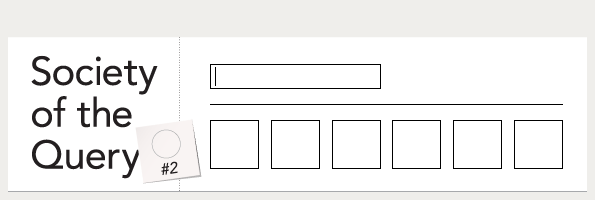Martin Feuz is an independent researcher with a strong interest in human-information interactions. Specifically, he focuses on exploratory (Web) search and the ways in which such interactions can be meaningfully and experimentally supported. In his recent work, he undertook a critical analysis of Google personal search to open the lid of Google’s black box a little bit and to make some of its behavior more door reflection.
In Society of the Query, Feuz presents the research that lead to the development of his new website Perspectoma.com. Perspectoma is a research engine that allows us to get a glimpse into how Google Personal Search delivers ‘personalised’ search results on the basis of an users Search and Web History.
Perspectoma works by simulating Search and Web Histories. The website offers five profiles for which Search and Web Histories are developed. These profiles contain approximately the equal amount of search queries that an average user accumulates over two years of searching with Google.
When performing a search, Perspectoma’s search result page shows:
• the search results only available for the profile
• the search results of an anonymous user without personalization
• the search results that are available to both, the selected profile and the anonymous user and but have a different search result ranking (blue)
• the search results that are available to both, the selected profile and the anonymous user and share the same search result ranking (green)
Google describes personal search as ‘based on your search & web history. Your personal results will be re-ranked or swapped for more relevant ones.” However, it gives no indications whatsoever when a particular search result is personalized. Therefore you actually never really know where your returns come from, and which ones are specially there to target you as a consumer, or to help you. Google states that if you don’t want personal search, you can just sign out of your Google account, Unfortunately, this is not a very practical because in the end you seem to sign into Google very often and easily forget to sign out.
Feuz starts his presentation by posing four main questions he wanted to deal with while creating Perspectoma.
• how soon (after how many queries) will Google Personal search play a roll in the Google search returns?
• how do these personal returns develop in terms of frequency and intensity?
• what underlying patterns can we identify?
• how will grouping of profiles influence the search terms?
To find answers to these questions, Feuz describes the research he did according to the 3 ghost accounts based on the characters Kant, Foucault and Nietzsche. He trained all of the accounts equally in training sessions with the help of software that did different search queries. To do this, he had to find a way to make an artificial profile relational for subjective inspection of personalized search results. To tackle this problem, he used specific books for the different theorists. He also had to find a way to get plenty search terms to create profiles.
After training session 1 Feuz found that the search returns for Foucaults profile were personalized results quite early, but not very frequently. The search returns for Kant were a bit of personalized but not to much/to often. Feuz also considers that this could have to do with the type language Kant uses in his books. For Nietszche a lot of personalized results turned up, but this actually was the result of a small glitch in the technology.
Martin Feuz concludes that he is surprised how soon the personal search returns seem start turning up. Google personalized search is not shy. After the second training sessions the amount of personal returns seem to grow, while after 3000 search queries more than every second result is personalized. Also, it seems that there is a kind of group profiling happening.
Finally, Feuz states that personalized search does not seem to be able to lift the less dominant voices from deep down the unbiased search returns. Actually, it seems that most often personalization means that only some of the returns from the second page have been swapped into the first ten personal search returns.


